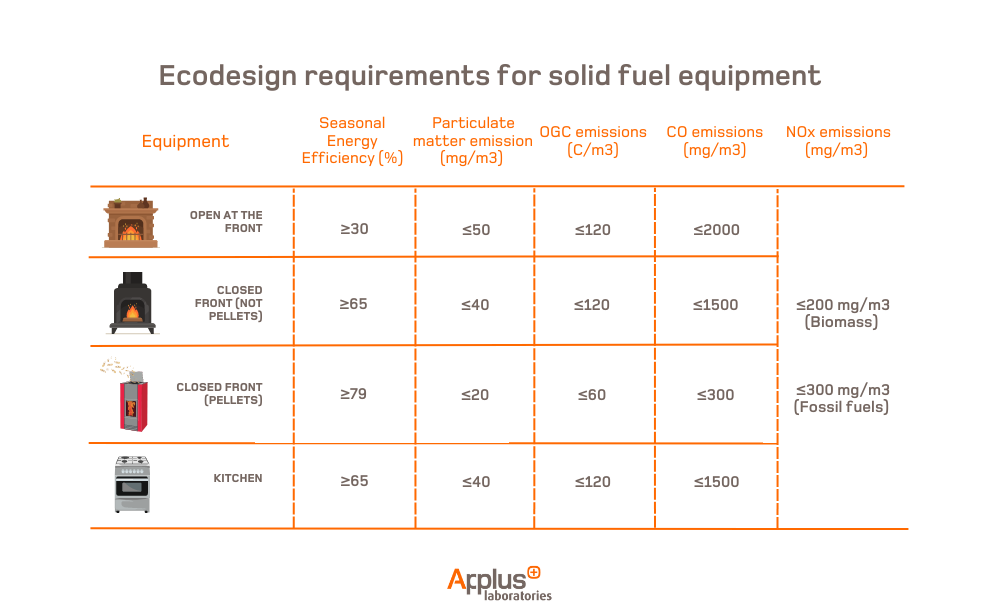Ecodesign, a requirement for solid fuel heating appliances
Did you know that solid fuel heating appliances with wood or pellets must comply with current Ecodesign regulations? Keep reading to understand what this implies and why it’s beneficial to meeting sustainable goals.
The rise and comeback of solid fuel heating appliances for households
For Europe, 2022 was a year with notable inflation. The current socio-economic situation produced supply shortages directly linked to our pockets. Despite measures put in place by European governments, the prices of essential resources such as electricity and natural gas increased, reaching peaks of up to £1585.82/MWhvi in the UK electricity market.
As a response to soaring prices, consumers decided to invest in solid fuel heating systems and appliances for their households. This rising trend continues to grow from last winter, when users began opting for cheaper materials for heat generation to reduce long-term costs. In fact, the demand for wood stoves in Europe has doubled this 2022 compared to previous years.
However, as solid fuel heating systems gain popularity, it’s important to know that not all can be legally marked or installed. Starting from January 1, 2022 they’ll have to comply with Ecodesign 2015/1185 and 2015/1189 Regulation.
Solid fuel heating
Solid fuel heating appliances burn wood (firewood, wood chips); agglomerated compounds (pellets, briquettes) or mineral coals (anthracite, coke, bituminous, lignite, hard coal, peat) as fuel. They are typically equipped with a water heating system to distribute the generated heat into several rooms.
What is Ecodesign? What are its benefits for the environment?
Ecodesign is a concept that gathers all design requirements to ensure that products and services can improve their environmental performance throughout their life cycle. Its first appearance was in the 90s due to the growing need to mitigate environmental impact in manufacturing and the demand for environmentally friendly products. For solid fuel appliances Ecodesign applies to solid fuel appliances use for domestic use, such as wood and pellet stoves, inserts, stoves and domestic boilers up to 50 kW.
Ecodesign aims to use solid fuels to promote the sustainable and environmentally friendly use of biomass. All appliances that comply with this norm have to ensure efficient combustion and reduce all gas and particles emitted into the atmosphere, as much as possible.
From the consumer's point of view, Ecodesign is their only option, since son-compliant equipment can no longer enter the market. Since they require a greater R&D investment, the cost of these type of appliances have an additional added value and cost. But in the long-run they could bring about savings due to their performance, since they are more energy-efficient and consume less fuel.
Main challenges for solid fuel appliances with Ecodesign
Before Ecodesign regulation came into force, solid fuel appliance CE marking requirements for certification were very loosely defined. However, starting from January 1, 2022 new emission and performance parameters also entered into force due to regulation, requiring manufacturers to adapt their product catalog to the norm.
When it comes to adapting these appliances to Ecodesign, a major challenge is reducing carbon monoxide (CO) emissions. While CE marking sets the limit of 1.0% or 12,500 mg/m3, Ecodesign regulation sets it at 0.12% or 1,500 mg/m3 (values referenced to 13% of O2 for equipment with a closed door). Appliances also have to abide to additional requirements related to total organic carbon (TOC), nitrogen oxide (NOx) and particulate emissions.
How to obtain an Ecolabel
Ecolabelling and Ecodesign go hand in hand. Complying with Ecodesign allows you to obtain ecolabelling. So, what is ecolabelling? As the name suggests, a label that provides energy consumption and other technical information about a product, in this case a heating appliance. This allows the consumer to easily compare characteristics before buying the product. As a mandatory requirement in the European market, all solid fuel heating appliances must include the informative label with their corresponding energy category.
Before ecolabelling, manufacturers put voluntary quality marks on their products. In France, the Flameberk scale subsidises appliance purchases depending on their category. Spain also wanted to implement something similar with the AECEC mark, but it hasn’t been as relevant as the Flameberk scale.
Since January 1, 2022, ecolabelling is mandatory for this type of equipment, but many manufacturers are still adapting their product catalogs because it is not a simple process.
Acquiring proper testing results is a requirement for eco-labelling. Applus+ Laboratories offers testing services for CE marking compliance with Ecodesign and Ecolabeling Directive: performance, power and emissions tests, as well as safety tests on biomass equipment (stoves, fire extinguishers, fire extinguishers, etc.).
